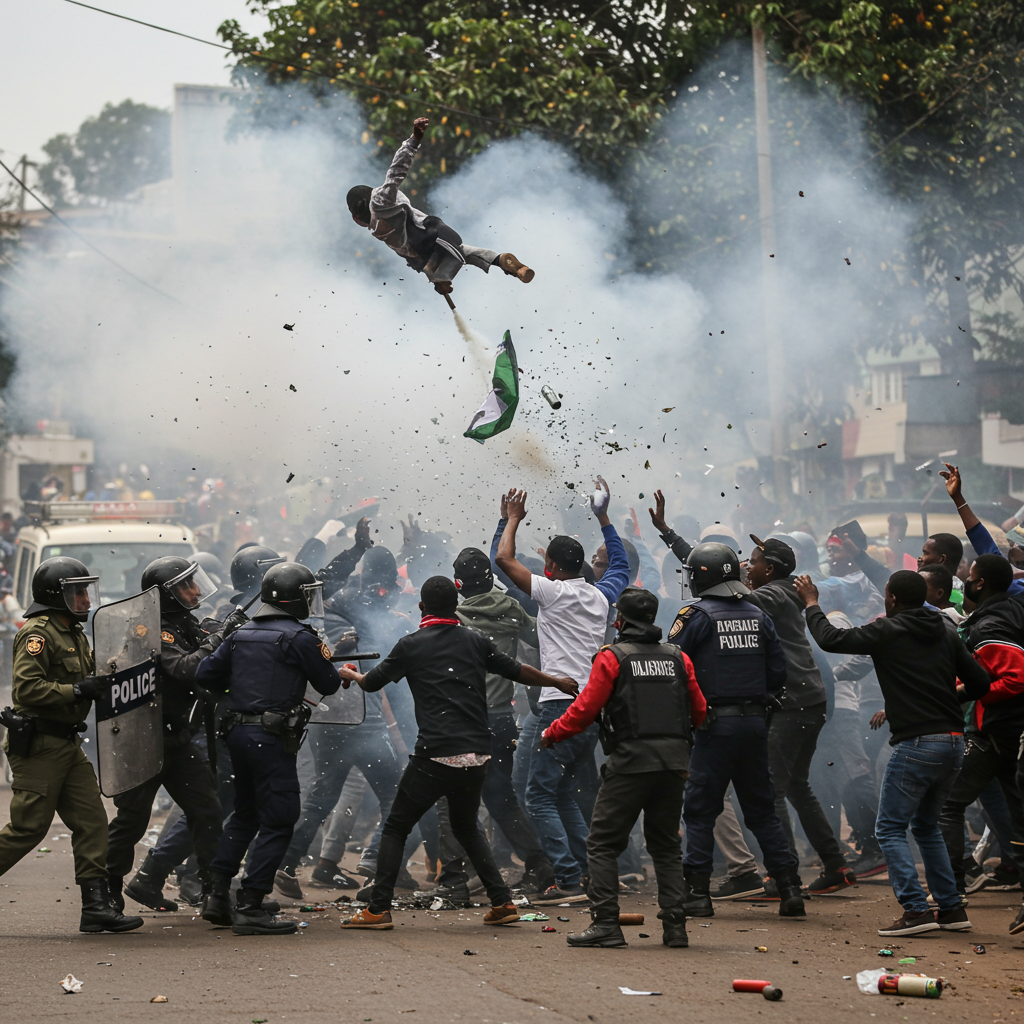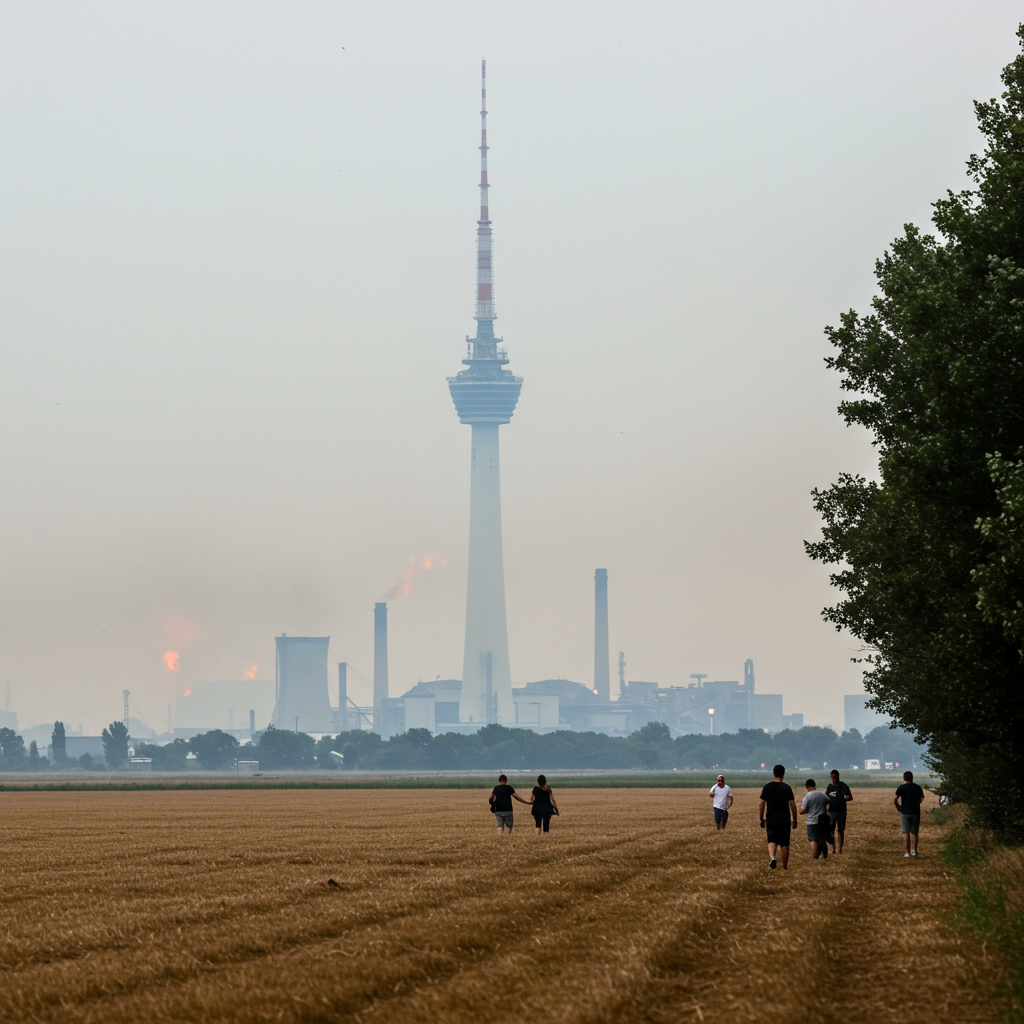An explosive audio recording has surfaced, allegedly capturing former bangladesh Prime Minister sheikh Hasina authorizing lethal force during the student-led protests that rocked the nation last year. Verified by a BBC Eye investigation, the tape suggests that Hasina directly ordered security forces to “use lethal weapons” and “shoot” protesters “wherever they find [them].” This chilling revelation marks a significant development in the legal proceedings against the former leader.
Prosecutors in Bangladesh intend to present this leaked audio as pivotal evidence in a special tribunal. Here, Sheikh Hasina faces charges for crimes against humanity, including accusations of orchestrating mass killings and targeted violence against civilians. She is currently being tried in absentia, having reportedly fled to India following the intense unrest.
Unrest and Allegations of Brutality
The widespread protests began in July 2024, initially triggered by student demands for reforms to the civil service job quota system. However, the movement rapidly escalated into a massive anti-government uprising, drawing tens of thousands onto the streets. The crackdown that followed resulted in tragic loss of life. According to UN investigators, up to 1,400 people perished during the summer of 2024, marking it as the most severe period of violence Bangladesh has endured since its 1971 war of independence.
Sheikh Hasina, who had held power for 15 years, was ultimately ousted by the momentum of the demonstrations. She and her Awami League party vehemently deny all charges leveled against her. A party spokesperson specifically rejected claims that senior leaders, including Hasina herself, were personally responsible for or directed the use of lethal force. They maintained that decisions made by officials were “proportionate in nature, made in good faith and intended to minimise the loss of life,” sometimes blaming “breakdowns in discipline” among security forces on the ground for the “regrettable loss of life.”
The Crucial Leaked Recording
The leaked audio at the heart of the case is reportedly a phone call from July 18, 2024. Sheikh Hasina was allegedly at her residence, the Ganabhaban, during this conversation with an unidentified senior government official. This timing was critical. Security forces were under immense pressure, reacting to widespread public outrage fueled by videos of police killings of protesters circulating on social media.
The BBC investigation established that, in the days immediately following this call, military-grade rifles were deployed and utilized across Dhaka. This is based on police documents reviewed by the BBC. The leaked recording is considered the most compelling evidence yet to suggest Hasina gave direct authorization for security forces to shoot anti-government demonstrators.
Independent Verification of the Audio
Given the gravity of the allegations, verifying the authenticity of the leaked audio was paramount. The BBC conducted its own independent analysis. Audio forensics experts from Earshot examined the recording. They found no evidence whatsoever that the speech had been edited or manipulated. The experts concluded it was “highly unlikely to have been synthetically generated.”
Their detailed analysis noted the presence of distinctive telephonic frequencies and background sounds. This suggested the call might have been recorded by playing it back on a speaker in a room. Crucially, Earshot identified Electric Network Frequency (ENF) throughout the recording. ENF interference is a strong indicator that audio has not been altered. Furthermore, analysis of Sheikh Hasina’s speech patterns – rhythm, intonation, and breath sounds – revealed consistent noise floor levels, confirming the absence of synthetic artefacts.
The Criminal Investigation Department of the Bangladesh Police also conducted a voice match. They compared the leaked July 18 recording with known audio samples of Sheikh Hasina’s voice. The results of their analysis reportedly corroborated the voice identification.
British international human rights barrister Toby Cadman, who advises Bangladesh’s International Criminal Tribunal (ICT), underscored the importance of the verified recordings. He stated the recordings are “critical for establishing her role,” describing them as “clear,” “properly authenticated,” and “supported by other evidence.” The Awami League, however, stated they could not confirm the authenticity of the tape referenced by the BBC.
Broader Investigation and Other Indictments
Beyond the pivotal leaked audio, the BBC Eye investigation undertook extensive analysis. They verified hundreds of videos, images, and documents. This material spanned 36 days of the protests, meticulously detailing police actions against demonstrators.
The investigation brought to light previously unreported details about police attacks. One incident stands out: a brutal massacre on August 5, 2024, in the Jatrabari neighbourhood of Dhaka. The BBC’s findings established that at least 52 people were killed by police in this single incident. This is a significantly higher figure than initial reports at the time, which suggested around 30 deaths in Jatrabari that day. The Jatrabari incident is now considered one of the worst instances of police violence in Bangladesh’s history.
The BBC investigation provided new insights into how the Jatrabari massacre unfolded. Gathering eyewitness footage, CCTV recordings, and drone imagery, BBC Eye determined that police opened fire indiscriminately. This occurred immediately after army personnel, who had been positioned to separate police and protesters, vacated the area. Police reportedly continued shooting at fleeing demonstrators for more than 30 minutes. Protesters attempted to escape down alleyways and onto the highway before the police officers sought shelter in a nearby army camp. Hours later, protesters retaliated, setting the Jatrabari police station ablaze. At least six police officers were also killed during this specific retaliation.
The ongoing legal proceedings target more individuals than just the former prime minister. The International Criminal Tribunal has indicted a total of 203 individuals in relation to the killings. Among these, 73 are currently in custody. The indicted list includes not only Sheikh Hasina but also former government and police officials. The Bangladesh Police acknowledged “regrettable incidents” involving “excessive use of force” by certain members of the force during that period. A spokesperson stated that 60 police officers had been arrested for their alleged roles in the violence in July and August 2024. They added that “thorough and impartial investigations” have been launched by the police.
The Trial and Political Landscape
Sheikh Hasina’s trial commenced on June 1, 2025. The charges she faces are severe. They include committing crimes against humanity, specifically issuing orders that resulted in mass killings and targeted violence. She is also accused of incitement, conspiracy, and failing to prevent the mass murder that occurred.
Her trial in absentia is likely to continue without her physical presence. India has not yet complied with Bangladesh’s request for her extradition. Barrister Toby Cadman suggested it is improbable that Hasina will return to the country for the proceedings.
The Awami League maintains its stance, denying that its leaders are liable for the force used against protesters. They categorically reject the findings of United Nations investigators, who indicated they had found reasonable grounds to believe the actions of Hasina and her government potentially amount to crimes against humanity.
Since Sheikh Hasina’s departure, Bangladesh has been governed by an interim administration. This government is led by Nobel Prize laureate Muhammad Yunus. The interim government is currently preparing for national elections. It remains unclear whether the Awami League will be permitted to contest these upcoming polls.
Frequently Asked Questions
What is the main evidence against Sheikh Hasina regarding the crackdown?
The primary evidence highlighted in the case against former Bangladesh Prime Minister Sheikh Hasina is a leaked audio recording from July 18, 2024. In this recording, a voice alleged to be Hasina’s is heard authorizing security forces to use lethal weapons and shoot protesters. The recording has been verified by a BBC Eye investigation and audio forensics experts, who found no evidence of manipulation, making it a key piece of evidence for the prosecution in her trial for crimes against humanity.
Where is Sheikh Hasina currently, and why is she being tried in absentia?
Sheikh Hasina reportedly fled Bangladesh for India following the intense protests in the summer of 2024. She has remained outside the country since then. Because she is not physically present in Bangladesh, she is being tried in absentia at a special tribunal for crimes against humanity. Bangladesh has sought her extradition from India, but India has not yet complied with this request.
What were the Bangladesh protests of 2024 about, and how deadly were they?
The 2024 protests in Bangladesh began over student demands for civil service job quota reforms but quickly expanded into a large-scale anti-government movement. The crackdown that followed was extremely violent. According to UN investigators, the unrest resulted in the deaths of up to 1,400 people, making it the most violent period in Bangladesh since its war of independence in 1971. Incidents like the massacre in Dhaka’s Jatrabari neighbourhood on August 5 saw high death tolls from police actions.



